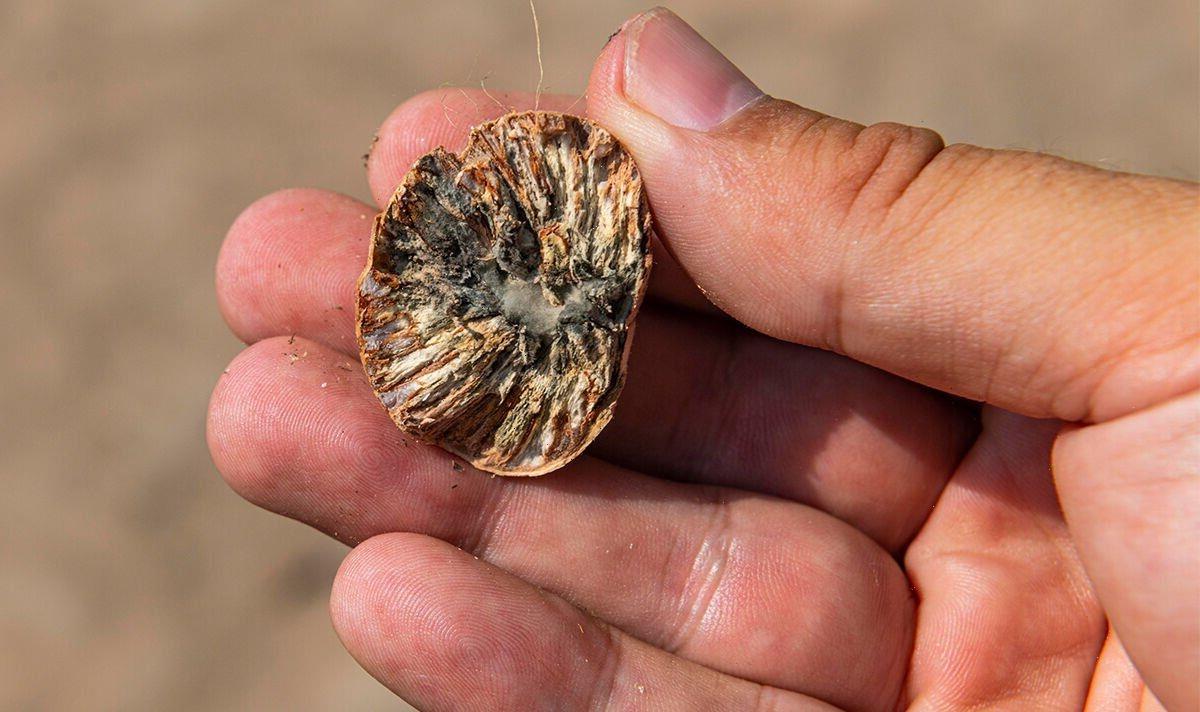Mouth cancer: What are the causes and symptoms?
We use your sign-up to provide content in ways you’ve consented to and to improve our understanding of you. This may include adverts from us and 3rd parties based on our understanding. You can unsubscribe at any time. More info
Mouth cancer claims more lives than car accidents every year, with figures from the 2022 Mouth Cancer UK Report showing cases have risen to record highs. Many of these incidents arise from precancerous changes in the mouth that are heavily influenced by lifestyle. Sometimes even dietary sources are the cause.
There is convincing evidence that high nut intake is significantly associated with a decreased risk of cancer, but not all cultures use nuts in pursuit of good health.
In some parts of South and Southeast Asia, the cultural practice of chewing betel nuts has played an important role in social customs for centuries.
But there is convincing evidence that the habit leads to oral submucous fibrosis – a condition that predisposes the body to oral cancer.
Moreover, when betel nut is used along with tobacco it can cause leukoplakia, which is also a potential malignancy in the oral cavity.

Evidence is conflicting, however, as research published in the journal Cancer Prevention Research shows betel nut has cancer-fighting properties too.
The seed, which comes from the areca nut, continues to be chewed by millions of people around the world, despite carrying a potential risk of cancer.
The substance is also legal in the UK, where it is commonly used by populations settling in India, Asia and East Africa.
A report published in the journal Nature earlier this year, stated: “Areca nut chewing is one of the major risk factors for oral cancer, with large-magnitude risks reported in studies comparing betel quid chewers and non-users.”
When it’s not chewed alone, the additive can be used in a mixture of tobacco or consumed as powdered or sliced betel nut.
Other foods to avoid
As a rule of thumb, the biggest food groups to avoid in the prevention of mouth cancer are those packed with salt, fat, and alcohol.
Cosmetic Dentist and Clinical Lead for Waldron Dental Clinic, Sundeep Patel,
recommends also steering clear of sugar to avoid mouth problems.
He said: “You should always be mindful of your sugar intake as sugar can advance to oral issues such as tooth decay and gum disease.”
These complications are major contributors to tooth loss, a significant risk factor for oral cancer.

Martin Preston, founder of Delamere rehab, added: “Some medical professionals believe that any amount of alcohol consumption can increase the risk of cancer of the mouth, throat, voice box, oesophagus and breast.
“Furthermore, if you were to drink in the region of three or more drinks every day, this can increase your risk of developing stomach cancer, liver cancer and colorectal cancer.”
Research has consistently shown that fried food is directly linked to stomach, rectal and colon cancer, but its involvement in mouth cancer is less clear-cut.
Several studies that have set out to elucidate this link have found a moderately increased risk of oropharyngeal carcinoma in men.
Iron, which participates in some fundamental cellular functions has also been associated with oral squamous cell carcinoma when consumed in high quantities.

This is explained by the fact that it can lead to the production of nitrogen compounds and catalyses the formation of free radicals that cause cell damage.
Aside from iron, red meat contains other compounds like nitrates and nitrites that are known to contribute to the development of oral cancer.
When cooked, meat is associated with severe carcinogenic mechanisms which generate toxic compounds for the body.
Conversely, the NHS suggests that eating a balanced diet that includes ample fruit and vegetables can protect against mouth cancer.
Source: Read Full Article
